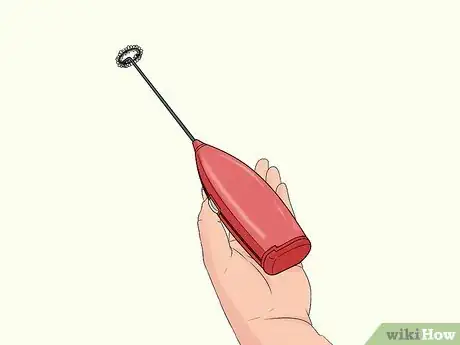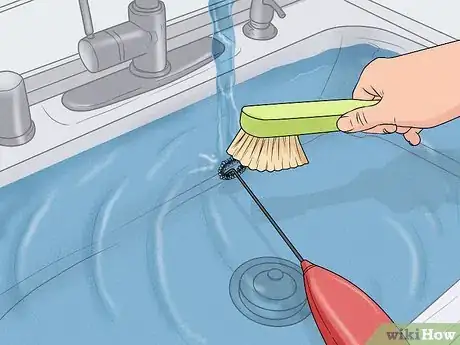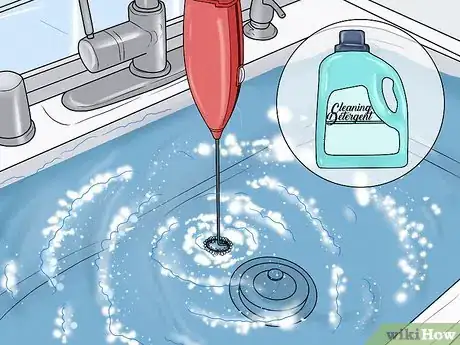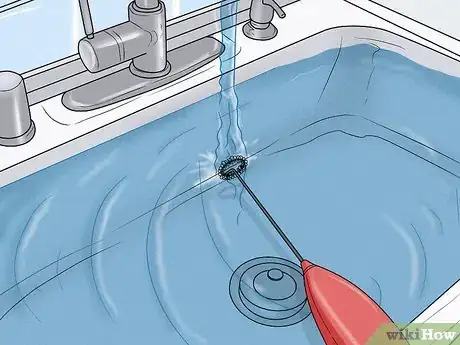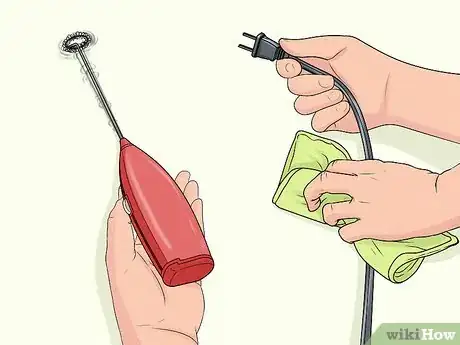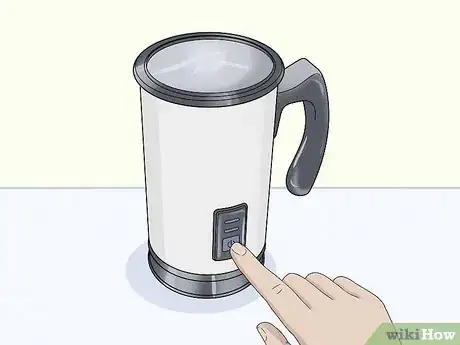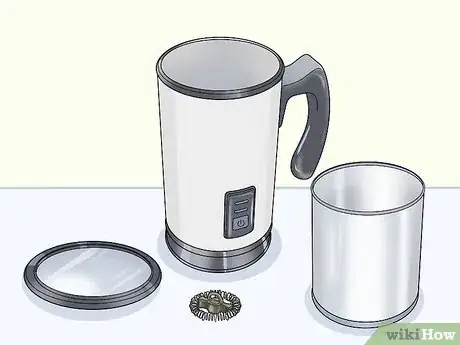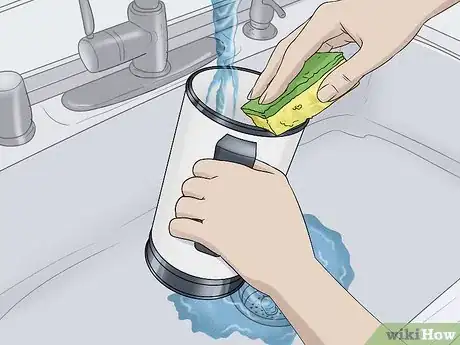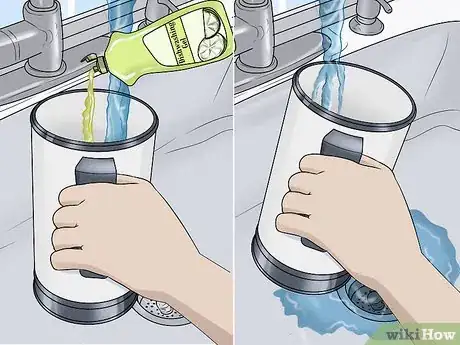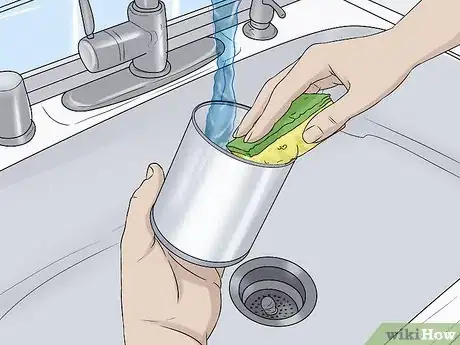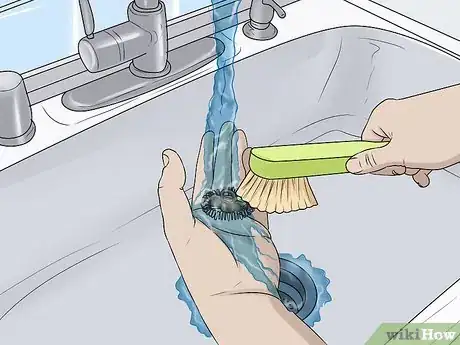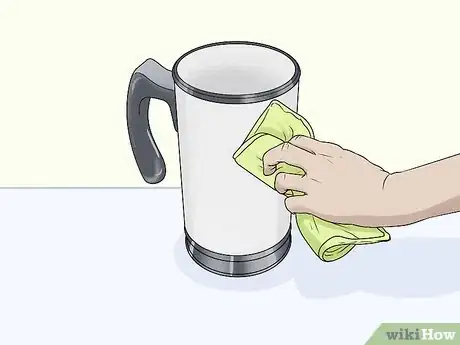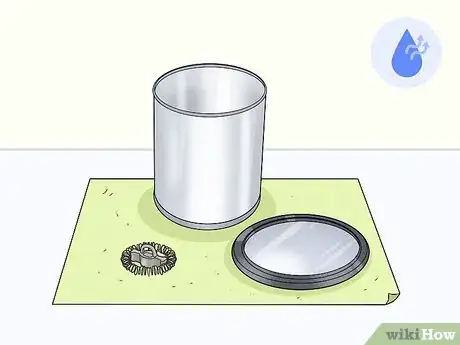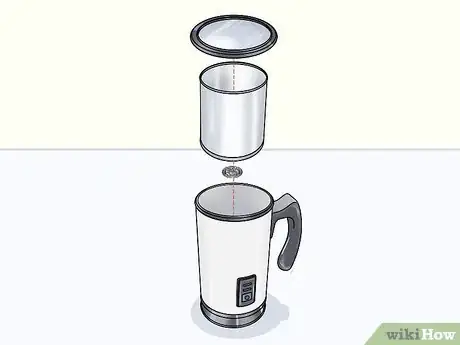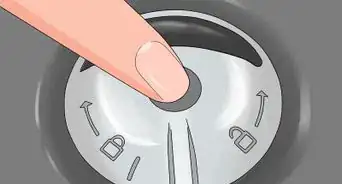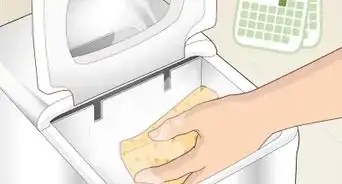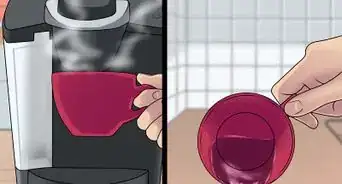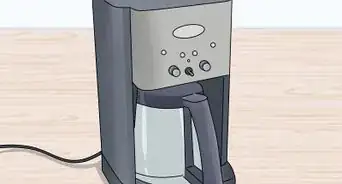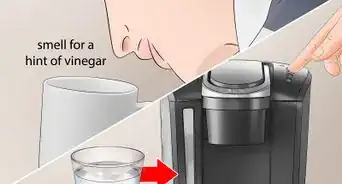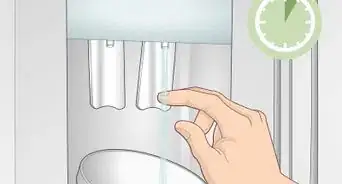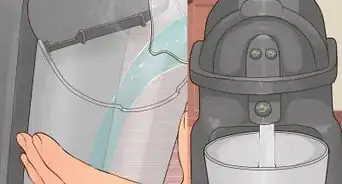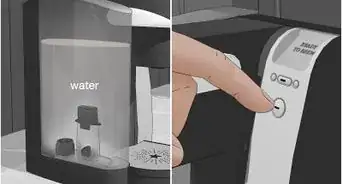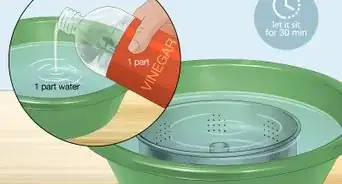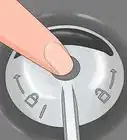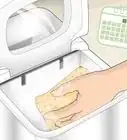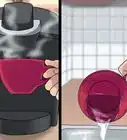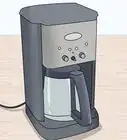X
wikiHow is a “wiki,” similar to Wikipedia, which means that many of our articles are co-written by multiple authors. To create this article, volunteer authors worked to edit and improve it over time.
This article has been viewed 28,220 times.
Learn more...
Milk frothers are just like any appliance - they get dirty. The process of cleaning the frother is simple. This article will show you how to clean your milk frother.
Steps
Part 1
Part 1 of 2:
Cleaning a Handheld Milk Frother
-
1Turn your milk frother off. Turn your milk frother off. Unplug it if the tool runs on electricity. Let the device cool down.
-
2Hold the dirty wand with the whisk under a faucet and hand-wash it with warm water. Be gentle when you clean around the coil so that you don't break it. Use a brush to clean the coil, if it holds any milk residue. If the wand has any limestone deposits, soak its whisking part in warm water with lemon juice/citric acid or other cleaners that eliminate milk buildup.
- You may also submerge the dirty whisk in a vessel with warm water and let the device spin for several seconds.[1]
Advertisement -
3Place the frother in warm soapy water and turn it on. Give your frother a periodic thorough cleaning with a thick cleaning detergent to prevent the formation of milk deposits. Sanitation with a detergent extends the service life of the tool.
-
4Add some soapy solution in a vessel with hot water. Dip the whisk into the soapy water and turn the frother on for several seconds. Keep the electric parts of the frother away from water.[2] You may use dish liquid or liquid soap.
-
5Rinse the frother under running water or immerse it in a vessel with pure water and turn it on. Let the device work for 10-15 seconds to wash away the remnants of the cleaning agent. You can repeat this stage several times. Use clear water each time. Give the wand a thorough rinsing if any detergent has been used.
-
6
Advertisement
Part 2
Part 2 of 2:
Cleaning an Electric Milk Frother
-
1Turn the frother off. Make sure that all the items that you are going to clean are not heated up. Unplug the tool from the outlet.
-
2Dismantle all of the removable parts. Put them aside, somewhere away from the sink. Remove the milk jug from the base. Detach other removable parts of the frother, like the frothing and heating disks. Both the base and the pitcher are not compatible with dishwashers and should be hand-washed.
- If the lid of the device has a seal, remove it, as well.[5]
-
3Rinse the carafe inside with warm running water. If there is any caked milk remaining on the bottom, wash it off with a non-abrasive sponge. You may use dish liquid or any other soft detergent. If you notice any limestone deposits, scrub them gently. You can also use citric acid or lemon juice. You can also use citric acid or lemon juice. Apply other cleaners that break down milk protein buildup. Don’t scratch the non-stick surface inside the carafe.
-
4Pour some liquid in the carafe and leave it to soak for 1-2 hours, then give the jar a good rinse with pure water. You may also make a paste from bicarbonate of soda and water.[6] Apply it on the bottom of the carafe for 10-15 minutes. Do not use knives or other metal objects to clean the burnt milk residue. Don’t expose the electric part of the device to moisture.
-
5Rinse it with warm water. All the detached attachments should be hand-washed separately with warm soapy water.
-
6Clean the frothing disks under a tap with warm water. If necessary, add dish soap and clean them with a brush. Do not damage the fragile whisks during cleanup.
-
7Clean the exterior with a soft cloth. Don’t use any chemicals for cleaning the stainless steel, because they may cause rust and discoloration.
-
8
-
9Assemble all of the parts after they are dry. Place the disks in their position or in the storage compartment. Attach the seal back to the lid.
Advertisement
Warnings
- Don't clean the appliance while it's plugged in.⧼thumbs_response⧽
- Never use abrasive sponges for cleaning. Most frothers have a non-stick cover that can be easily scratched up.⧼thumbs_response⧽
- Don’t use chemicals for cleaning stainless steel, because they may cause rust and discoloration.⧼thumbs_response⧽
- Never use metal objects (such as a spoon or knife) to clean the burnt milk residue.⧼thumbs_response⧽
- Don’t expose the electric part of the device to moisture.⧼thumbs_response⧽
Advertisement
References
- ↑ https://www.youtube.com/watch?v=5cif_vo8mvo
- ↑ https://www.youtube.com/watch?v=5cif_vo8mvo
- ↑ https://www.youtube.com/watch?v=5cif_vo8mvo
- ↑ https://www.aerolatte.com/support/aerolatte-original/
- ↑ https://www.youtube.com/watch?v=sk1ro_zQLlE
- ↑ https://milkfrothertop.com/how-to-clean-milk-frother/
- ↑ https://helpfulcolin.com/2014/12/cleaning-nespresso-aeroccino-milk-frother/
- ↑ https://www.aerolatte.com/support/aerolatte-original/
About This Article
Advertisement
